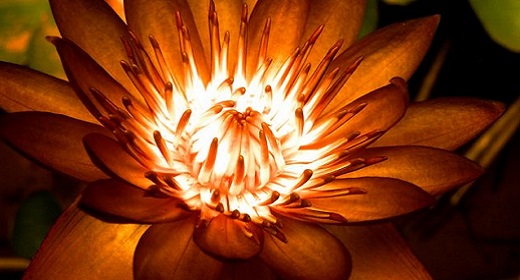Forest bathing brings our bodies and minds into a relaxed and quiet state…

where we are fully aware of where we are and what we are experiencing in the present moment. A simple motto—”The forest is the healer; the practice opens the doors”—is a reliable guide.
Several elements characterize forest bathing and set it apart from hiking and other outdoor activities.
One is the pace. Forest bathing walks are very slow and relaxed.
Another is distance. There is no need to go far; often less than a quarter mile will do. (Once, a group I was with did our entire three-hour forest bath under and in the branches of a single oak.)
Also, we focus on our senses. This is a departure from expectations that structured time in the forest should have something to do with learning scientific facts about nature.
Forest bathing also invites us to receive. We use our senses to welcome the gifts the forest offers us, such as the sounds and sights and unique energies we feel from place to place along the trail. Receiving is a part of communication with the more-than-human world.
Another aspect of communication, fundamental to a sound forest bathing practice, is reciprocity. The reciprocity principle is that we don’t just take from the forest; forest bathing is not about humans exploiting nature by extracting wellness and pleasure from it. It is about a partner relationship, characterized by communication and give-and-take.
Of these elements, relationship is the most fundamental. Let your forest bathing practice be a continual inquiry about what it means to be a part of the web of relatedness connecting all living beings. This inquiry is a core intention of forest bathing.
In Ethic of Tenderness
Many people have learned that “leave no trace” is a general ethical principle to follow in nature.
I agree that it is a good principle in protected and fragile environments, such as alpine meadows that have brief growing seasons. However, it is not the ethic I recommend for forest bathing. An alternative is “wild tending.” This approach is congruent with the ways of many indigenous peoples, who view the land not as a resource to protect but as a complex web of many relationships, and each being—ourselves included—holds a place of importance and membership. M. Kat Anderson describes this in her book Tending the Wild.
This view of life as related, equal, and highly intelligent is what Enrique Salmon (Raramuri) calls a “kincentric” view of the world. In this view, nature is not to be treated as a separate entity “out there.” Homo sapiens are full participants in nature, and they share mutual obligations and intricate interactions with many other forms of life.
The heart of this kincentric ethic is the notion of tenderness.
Just as we are tender toward the people we love who are under our care, we can be tender toward the forest and its many beings, each of whom are our kin.
Our hearts respond to what is happening in the forest, especially as events relate to our own actions. When I am guiding, there is a place where I frequently gather the group to stand in a circle for the “embodied awareness” invitation and meditation. Sometimes, we come to that place and it looks a bit trampled. My heart tells me it needs a break, so I take my group to another location. That is tenderness. The forest returns the tenderness it is given. When I return later after giving a location a break, I may be rewarded with a welcoming display of wildflowers.
Forest ecosystems tend to be resilient in general, but they can also be threatened by thoughtless overuse or by organisms that are either not native or opportunistically take advantage when trees are compromised by drought or other unfavorable conditions.
The great kauri of New Zealand are threatened by a soilborne disease; in a tender response to this, human caretakers have put out water troughs with antiseptics in them, and hikers use these to carefully clean dirt from their shoes before entering the forests where the kauri grow.
Reciprocity
It is a strongly ingrained cultural habit to think of nature as a collection of resources.
Forest bathing opposes this assumption.
One of the beautiful areas of inquiry in forest bathing has to do with how we can give as much as we receive. We call this “reciprocity practice.” If we are not attentive to reciprocity, forest bathing could become just another way to exploit the forests, treating them as resources in service of human health. That is not congruent with the relational aims of forest therapy, in which we respect the gifts offered by all things and expect of ourselves that we will likewise be givers, not merely takers.
Reciprocity increases awareness of the many ways in which we are connected with the more-than-human world. It supports the development of relationships. Aim to creatively practice the reciprocity of both giving and receiving in all your forest bathing outings.
You can do this anywhere, at any time, following this simple method:
Notice what things exist around you. Either silently or quietly speaking (preferred), acknowledge the thing and describe what you have received from it (and its type). For example, “Here is a tree, which has shared shade and places to rest.”
Find something to offer it. This could be a gesture or a song; perhaps you would like to write a note and conceal it where only the earth can read it. Allow time for an inspiration to appear.
Learn to incorporate this idea into all your forest bathing activities. It will help to hone your understanding of your relationship to all things.
~
About the author:
Amos Clifford is the author of Your Guide to Forest Bathing (Conari Press, April 2018) and founder of the Association of Nature and Forest Therapy, an organization leading the movement to integrate nature and forest therapies into health care, education, and land management systems. He has been a student of Buddhist philosophy for over twenty years and is the founder of Sky Creek Dharma Center in Chico, CA. Visit him at www.forestbathing.info.















































